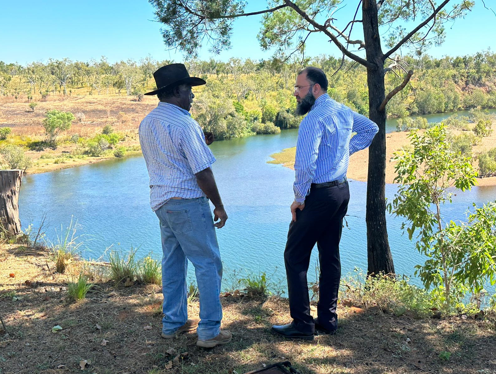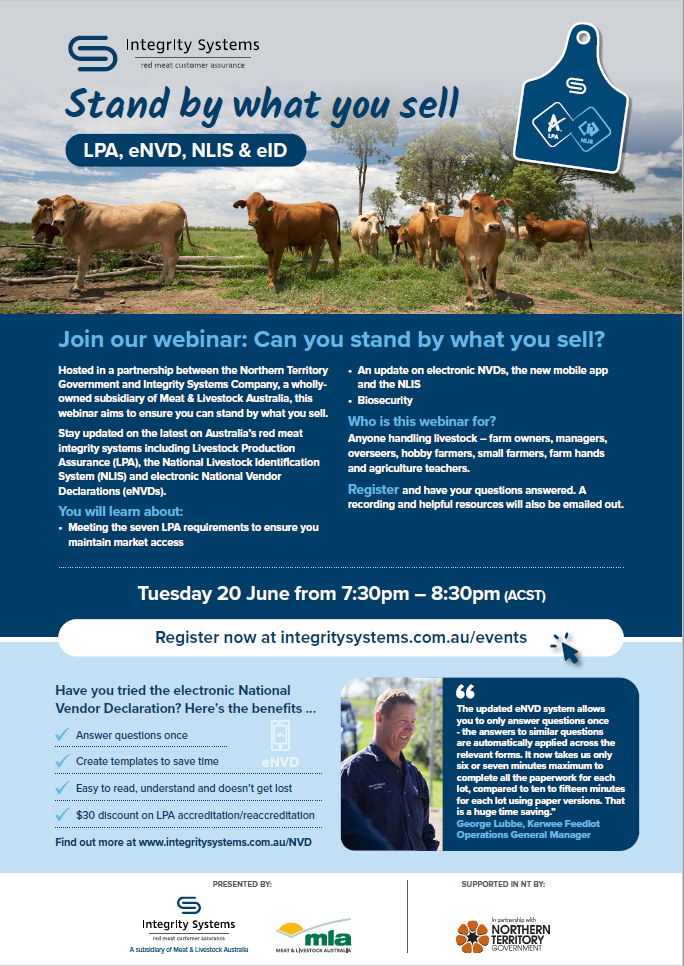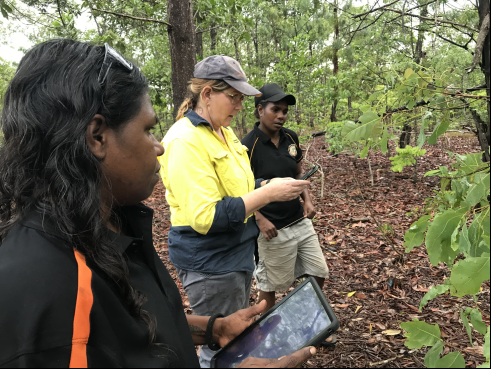Agriculture and Biosecurity newsletter: June 2023
Welcome to the Agriculture and Biosecurity newsletter for June 2023.
Looking back is necessary to learn from experiences
Climate change is an important topic due to its potential impact on all aspects of life. Plant based industries are among the first ones to realise the shift in climatic conditions witnessed through varying plant physiology and behaviour of insects, pathogens, and related organisms. Growing food for an expanding world population is important, and so is to look back and learn from our actions that might have led to climate change and its impact on our lives.
Mr Frank Shadforth of Seven Emu Station is a strong advocate of conservation agriculture. A team of Plant Industries Group recently visited Seven Emu Station to discuss agribusiness development collaboration possibilities. Frank welcomed the team and happily shared activities Frank and his family is currently doing around bushfood and hosting camping adventurists at the station. Frank is open to grow vegetables and fruits on his property but only to the extent necessary for consumption for himself, his family, and the camping adventurists he hosts through the dry season of the year.
Talking about the shift in climatic conditions, Frank shared his views on human activities of disturbing the natural balance of fauna and flora that has led to the shift in plant physiology and their flowering behaviour, the movement of pollinators - largely the native bees, and relocation of flying fox. Frank believes that conservation farming is the best remedy to deal with climate change; and that we need to learn to respect the nature so that nature respects us, and returns through protecting our needs. Frank is keen to share his knowledge with people who can preserve and pass on the Indigenous values and knowledge of conservation farming to future generations. Frank said that he would welcome electronic media and research community to come and stay at Seven Emu Station and learn from his life lessons to pass on to future generations.
Dates confirmed for Cattle and Bull Sales
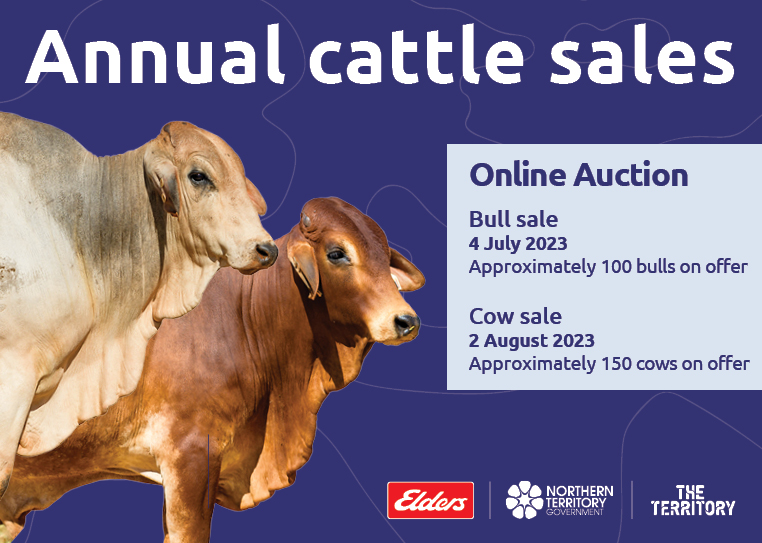
Each year, the Department of Industry, Tourism and Trade auctions a portion of our Brahman and tropical composite cattle.
The animals are from the department’s long term selective breeding programs and current genetic research projects. The upcoming sales are an opportunity for industry to invest in high-performance cattle that have been bred to be more productive, fertile and adapted to the Territory climate.
Cattle offered for sale have estimated breeding values (EBVs) and the bulls have passed a breeding soundness evaluation.
Bull sale
The bull sale will be held on Tuesday 4 July 2023 with approximately 100 bulls on offer. The bulls are located at the Katherine Research Station.
Cow sale
The cow sale will be held on Wednesday 2 August 2023 with approximately 150 cows on offer. The cows are located at the Douglas Daly Research Farm, Beatrice Hill Research Farm and Katherine Research Station.
The sales will be conducted online through AuctionsPlus with a full catalogue provided by Elders closer to the date.
To arrange an appointment to view or for more information, contact Gretel Bailey-Preston on 0448 771 449 or gretel.baileypreston@nt.gov.au.
Register your interest for the upcoming BeefUp Forum in the Northern Territory
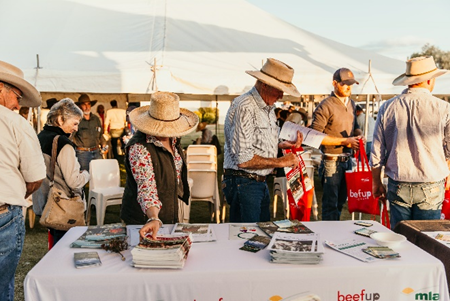
Travelling to all corners of northern Australia, BeefUp forums provide a chance for producers, advisors, researchers and other experts to come together to share information and ideas to support the continued growth of beef businesses throughout northern Australia.
We are pleased to advise that there are two upcoming BeefUp Forums in the NT:
- Alice Springs - 21 July 2023
- Barkly - 24 July 2023
Please register your attendance here for Alice Springs and here for Barkly.
Upcoming webinar – stand by what you sell
Hosted in a partnership between the NT Government and Integrity Systems Company, this webinar aims to ensure you can stand by what you sell.
Stay updated on the latest on Australia’s red meat integrity systems including Livestock Production Assurance (LPA), the National Livestock Identification System (NLIS) and electronic National Vendor Declarations (eNVDs).
This webinar will be held on Tuesday 20 June 2023 from 7.30pm-8.30pm ACST.
You will learn about:
- meeting the seven LPA requirements to ensure you maintain market access
- an update on electronic NVDs, the new mobile app and the NLIS
- biosecurity
You can register your attendance here
Indigenous-led forestry industries brush up on biosecurity
Indigenous communities in northern Australia own and manage around 46 million hectares of forest, including socioeconomically important forestry enterprises such as the 32,000ha of plantation hardwoods owned by Tiwi Plantations Corporation on the Tiwi Islands, and the native forestry sawmill and woodworks of Gumatj Corporation in East Arnhem.
Forestry researchers from the Northern Territory (NT) Government’s Department of Industry, Tourism and Trade’s Forestry Group, Queensland’s Department of Agriculture and Fisheries’ Horticulture and Forestry Science Branch, and the University of the Sunshine Coast’s Tropical Forests and People Research Centre have teamed up to deliver forest biosecurity training and capacity building to the Tiwi Islands’ and East Arnhem’s Indigenous forestry industries. The 2-year project, led by Plant Health Australia, is funded through the Department of Agriculture, Fisheries and Forestry’s Business Biosecurity Grants.
The project aims to use novel survey techniques, culturally appropriate training methods and established partnerships to:
- build baseline/updated surveys of forestry pests and diseases in the 2 Indigenous-led forestry industries in the NT (plantation and native forests)
- evaluate surveillance and diagnostic methods appropriate for these remote Indigenous communities
- assess the cultural and remote feasibility for integration of surveillance methods in business-as-usual monitoring to deliver long-term industry preparedness
- raise awareness in biosecurity surveillance, diagnostics and preparedness in Indigenous forestry enterprises, their ports and the environment that surrounds them
- build incursion response capability in remote northern communities through engagement opportunities with forestry and biosecurity specialists
- protect and safeguard these economically important northern forestry industries.
The project team are working with Gumatj Corporation and Indigenous ranger groups, Yirralka and Dhimurru rangers, in East Arnhem and Tiwi Plantations Corporation, Plantation Management Partners, and Tiwi Land and Marine rangers on Melville Island. The team have completed one dry season and one wet season campaign in each location, delivering forest health surveillance education and training including; pest and disease symptom recognition, sample collection, labelling and photography, and mobile app-based reporting.
Building capacity for detection and reporting of biosecurity threats to the northern forestry industries will help protect these important Indigenous-led enterprises and help to keep country healthy for future generations.
Give feedback about this page.
Share this page:
URL copied!
